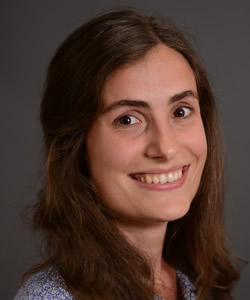Spokespersons of conservative Muslim communities in Western Europe find themselves in a delicate situation as they face the imperative to garner legitimacy among distinct audiences. On the one hand, they need to convince general public opinion and political authorities, for which compliance with secular liberalism is the dominant norm, of their trustworthiness and moderation. From this perspective, they are often expected to remain independent from foreign influence, limit the visibility of Islamic signs and symbols, and espouse liberal ideals. On the other hand, they have to mobilize, organize, and serve their pious constituents, who are generally attached to norms of so-called Islamic authenticity and religious observance.
My dissertation aims at exploring how Muslim actors navigate these normative prescriptions about their religion. In particular, it seeks to disentangle the subtle trade-offs Islamic organizations have to negotiate between political pressures for a “civil Islam” and intra-community expectations for “religious authenticity.” It investigates the double-bind situation in which Muslim political actors find themselves through a case-study: the Union of Islamic Organizations of France (Union des organisations islamiques de France, UOIF), one of the most prominent organizations in the French Islamic landscape. Founded in 1983 by religiously observant students sympathizing with the Muslim Brotherhood, the UOIF functioned at first as an exclusive group of activists taking France as a relatively contingent territory for their member-centric activities. Pushed by external and internal pressures, however, the organization pivoted in the late 1980s to embrace an up-and-coming project of grassroots community building. It rapidly evolved into an influential Muslim interest group, willing to be recognized by policymakers as a credible interlocutor and reliable partner.
Building on months of ethnographic fieldwork as well as untapped historical material drawn from interviews, governmental archives, and media analysis, my dissertation argues that UOIF leaders progressively embraced a strategy of “respectabilization” which consisted in assuaging suspicions about their Islamist filiation and subscribing to dominant secular-republican scripts about Islam. Such strategy encompassed an array of ideological, organizational, and tactical adaptations—from the construction of a respectable façade to the sanction of unruly members and from cooperation with non-Muslim groups to theological reformulations—designed to establish the organization’s credibility, circumvent stigmatization, and gain recognition. It allowed the organization to participate in institutional politics, build political connections with some elite groups, notably at the local level, and become a member of the French Muslim Council set in place in the early 2000s at the initiative of the interior minister.
Aligning with dominant norms and expectations, however, was not a linear and free-of-cost process. On one side, UOIF leaders alienated parts of their Muslim followers, being accused of compromising doctrinal principles and “selling out” Islam. Some members of the organization, in particular, felt estranged by the distancing of the UOIF from its traditional references and objects of mobilization. On the other side, from the perspective of the larger non-Muslim society, the ambition of the organization to sidestep the Islamist stigma attached to its foundation proved relatively unsuccessful since suspicions about the motivations of UOIF leaders are pervasive in public discussions and their supposed “double-speak” is regularly denounced.
Writing the undocumented history of the UOIF on the basis of fresh primary sources and from a sociohistorical perspective lays out new angles on the political and religious agency of Islamic revivalist actors in minority contexts. It allows us to rethink the conditions of possibility for religious freedom to be deployed in secular liberal democracies by inquiring into the effect of normative expectations on the activities, discourses, and self-presentation of religious minority representatives.

